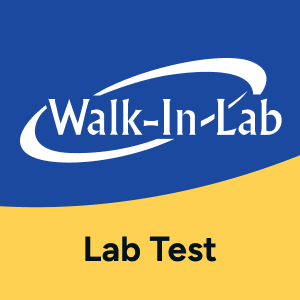
PPP Wellness #1 Blood Test Panel
The PPP Wellness #1 Blood Test Panel includes Lipid Panel, CMP-14, Hemoglobin A1C, Homocysteine, CRP, TSH, Free T3, Free T4, Vitamin D-25, Testosterone total, Estradiol, and Insulin Fasting.
The PPP Wellness #1 Blood Test Panel includes:
Lipid Panel:
- Cholesterol, Total - A measurement used to assess heart health. Cholesterol is required by your body to build healthy cells, but high cholesterol levels can increase your risk of heart disease.
- Triglycerides - Surplus fats that are transported in the bloodstream are also responsible for providing energy to the body.
- HDL Cholesterol - High-density lipoproteins, or "good" cholesterol, take cholesterol away from the cells and transport it back to the liver for removal or processing.
- LDL Cholesterol - Low-density lipoproteins (calculation), or "bad" cholesterol, contain the highest percentage of cholesterol and are responsible for depositing cholesterol on the artery walls.
- VLDL Cholesterol - (VLDL included in LabCorp Only) contains the highest amount of triglycerides. VLDL is a type of "bad cholesterol" because it helps cholesterol build up on the walls of arteries. VLDL included in LabCorp Only
Comprehensive Metabolic Panel (CMP-14) with eGFR:
- Glucose - The blood sugar level is the most direct test to screen for diabetes and is also used in diabetes management.
- Kidney Profile
- Bun or Urea Nitrogen (BUN) - An indicator of kidney function.
- Creatinine, Serum - An indicator of kidney function.
- Bun/Creatinine Ratio - Calculated by dividing the BUN by creatinine. This ratio can suggest conditions including dehydration or intestinal bleeding.
- Estimated Glomerular Filtration Rate (eGFR) - Measures kidney function to determine kidney disease stage and detect early kidney damage.
- Liver Panel
- Protein, Total - Assists in determining liver and kidney function and nutritional health.
- Albumin Serum - One of the significant proteins essential for the healthy function of the liver and kidney.
- Globulin, Total - One of the major proteins that assist the blood in clotting and adequately comprise infection-fighting antibodies.
- Albumin/Globulin Ratio - Calculated by dividing the albumin by globulin. When paired with other test results, this ratio can assist in diagnosing various liver problems.
- Bilirubin, Total - Aids in detecting hepatitis, sickle cell, anemia, cirrhosis, alcohol, and drug abuse. High concentrations may result in jaundice.
- Alkaline Phosphatase - A protein vital in detecting bone disorders and liver disease.
- Aspartate Aminotransferase (AST or SGOT) - An enzyme helpful in evaluating liver function. An elevated level is an indication of hepatitis.
- Alanine Aminotransferase (ALT or SGPT) - An enzyme helpful in identifying liver damage. Abnormalities may represent liver disease.
- Fluids & Electrolytes
- Sodium - One of the major salts in body fluid. Sodium is essential in water balance and the electrical activity of nerves and muscles.
- Potassium - Helps to control the nerves and muscles.
- Chloride - Similar to sodium, it helps to maintain the body's electrolyte balance.
- Carbon Dioxide, Total - Used to help detect, evaluate, and monitor electrolyte imbalances.
- Calcium - A mineral essential for developing and maintaining healthy bones and teeth. It is also vital for the normal function of muscles, nerves, and blood clotting.
Hemoglobin A1c:
- Evaluate glucose levels in the blood over the last 2 to 3 months.
Homocysteine:
- It helps diagnose vitamin B6 and B12 deficiency and a folate deficiency.
High Sensitivity C-Reactive Protein (hs-CRP):
- Assesses the risk of developing cardiovascular disease (CVD).
Thyroid-stimulating Hormone (TSH):
- Assists in diagnosing and monitoring thyroid disorders, hypothyroidism, and female infertility problems. It is occasionally used to help evaluate pituitary gland function.
Free T3:
- Measures the blood's free, unbound triiodothyronine levels to screen for thyroid disorders.
Free T4:
- It may be indicated when binding globulin (TBG) problems are perceived or when conventional test results appear inconsistent with clinical observations. It is normal in those with high thyroxine-binding globulin hormone binding who are euthyroid (i.e., free thyroxin should be normal in nonthyroidal diseases). It should also be normal in familial dysalbuminemic hyperthyroxinemia.
Vitamin D 25-Hydroxy:
- Measures vitamin D levels to screen for a deficiency. It may also be ordered before an individual begins osteoporosis drug therapy. Low levels may indicate a dietary deficiency, malabsorption, or lack of exposure to sunlight.
Testosterone Total:
- Measures total testosterone hormone levels in the blood to detect an abnormal level or hormone imbalance.
Estradiol (E2):
- Measures the E2 hormone levels in the blood to detect an abnormal level or hormone imbalance.
Insulin Fasting:
- Used in diagnosing and the therapy of various disorders of carbohydrate metabolism, including diabetes mellitus and hypoglycemia.
CPT Code(s): See Individual Tests
Preparation:Patient should maintain a stable diet for 2–3 weeks before blood collection and fast for 12–14 hours prior. Stop biotin 72 hours before collection. Collection should not occur during or after administration of heparin.
Test Results:
3-5 days. May take longer based on weather, holiday, or lab delays.
Details:"
This test includes the following:
- Total Cholesterol
- High-Density Lipoprotein (HDL) Cholesterol
- Low-Density Lipoprotein (LDL) Cholesterol (calculation)
- Triglycerides
- Very Low-Density Lipoprotein (VLDL) Cholesterol (calculation) (LabCorp Only)
"